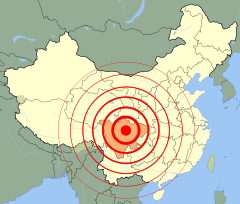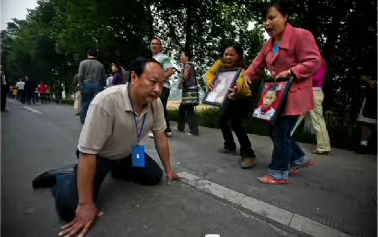How should governments decide when a law is required and when to let people govern themselves?
The Readings, the band who wrote Wanda's Song, had this to say:
"
...The three of us knew people in our childhood who Wanda represented. And we could relate to the experiences of the main characters."
If you look back right now, if you look around your school right now...
- What kind of painful things are happening?
- Will you view things differently 15 years from now?
- Will it take that long?
How can you spot a scam? There will always be people trying to get your money.
Caveat emptor is a Latin phrase meaning, "Buyer beware." As a buyer, how can you avoid scams? We've shown you just a few tips in these lessons. The
FBI publishes tips to avoid common scams. Take a look at the FBI site and a few of these others and then see if you can make your own "Top Ten" list of ways to avoid scams.
[Note to teachers - Scam Theater can be a great role playing activity. Have students play scammer and buyer and see how good they are at spotting the rotten deal. To liven things up a bit, toss in some honest good deals in the mix.]
Are these parent concerns valid?
Digital Parenting:
Protecting and Empowering KidsWatch this PBS video and look at these issues from a parent's point of view. Are these concerns valid? How can children understand how their parents feel about social networking?
Do kids willingly go with Internet predators?One of the questions put to the Peter Brust, the FBI special agent in charge of the Counterintelligence and Cyber Divisions in the Los Angeles FBI field office was:
Q: Is there any truth to this idea that some of these kids are going willingly, that we have the wrong idea when we think of this only in terms of abductions?
A: "The figures, as far as I'm aware of them, indicate probably 83 percent of child victims go willingly with the subject, with the predator. But again the ages of these victims are anywhere from 13 to 15, 16 years old. These children have not developed a mental capacity to match wits with a 40-year-old adult who's been doing this for the last 15 years, targeting children online. They are recruited. They are brainwashed. They're not making logical decisions. They're not making intelligent, knowing decisions to go with these people.
And I'm telling you, a lot of kids are savvy. If a stranger contacts them online, if someone makes an unwanted sexual advance, ... they just click off or they'll tell their parents. But many don't. Many just think that they're smarter than anyone else and they know how to handle it. But sometimes it gets out of hand."
- Why is that number so high?
- What other options do kids in trouble have?
- Can you find and post the phone numbers you would call to reach help agencies in your own community?
Social media and the 2008 Sichuan earthquake
The Internet and social networks played a large role in how the world learned about the
2008 Sichuan earthquake in China.
More than 68,000 were killed including children in schools that collapsed because the buildings were not built correctly. The image below is that of a local official prostrating himself, asking for forgiveness from grieving parents.

In this case, access to information from the social network helped to keep the government accountable to quake victims.
A similar situation emerged during the 2009 elections in Iran where
protesters used Twitter to communicate with the rest of the world.
- Can you find other examples of when social networks were used during a crisis or important news event?
- Can you think of a project in your local community that would benefit from a social network?
- Are there issues in your school that could be discussed on a social network? Is there a downside or risk to doing this?
 Wanda's Song - "Looking back I see the pain..."
Wanda's Song - "Looking back I see the pain..."
 Wanda's Song - "Looking back I see the pain..."
Wanda's Song - "Looking back I see the pain..."
 The Internet and social networks played a large role in how the world learned about the
The Internet and social networks played a large role in how the world learned about the  In this case, access to information from the social network helped to keep the government accountable to quake victims.
In this case, access to information from the social network helped to keep the government accountable to quake victims. 